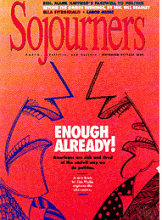In The Price You Pay: The Hidden Cost of Women's Relationship to Money, Margaret Randall writes:
It is much easier, in today's United States and across class and cultural lines, to talk about sex, religion, or politics, than it is to truthfully tell one another how much we earn, need, spend, save, have—about how certain monetary customs hurt us, about the shame we were made to feel as children if we 'cost too much.'
Or the shame we feel as adults because we have too little or too much, or because we lack control over what we have. Because we have been manipulated by power wielded through money. Because we manipulate others, using money as bait or as a currency of domination.
How is it that money, once associated with goddesses of abundance, wounds individuals and generations of families? What creative financial arrangements are couples and communities undertaking to achieve healing and justice?
To answer these questions, Randall interviewed hundreds of women from every walk of life. The result is an immensely readable, brilliant work of social analysis that will make you weep (and sometimes laugh) with recognition.
"I knew 1,001 ways to make hamburger," says one woman, recalling her husband's compulsive spending on "expensive toys" such as cameras and motorcycles. Others tell childhood stories of abuse and lies associated with money and how these carried over into adult relationships—in everything from separate bank accounts to fights over finances and secret purchases.
Read the Full Article
